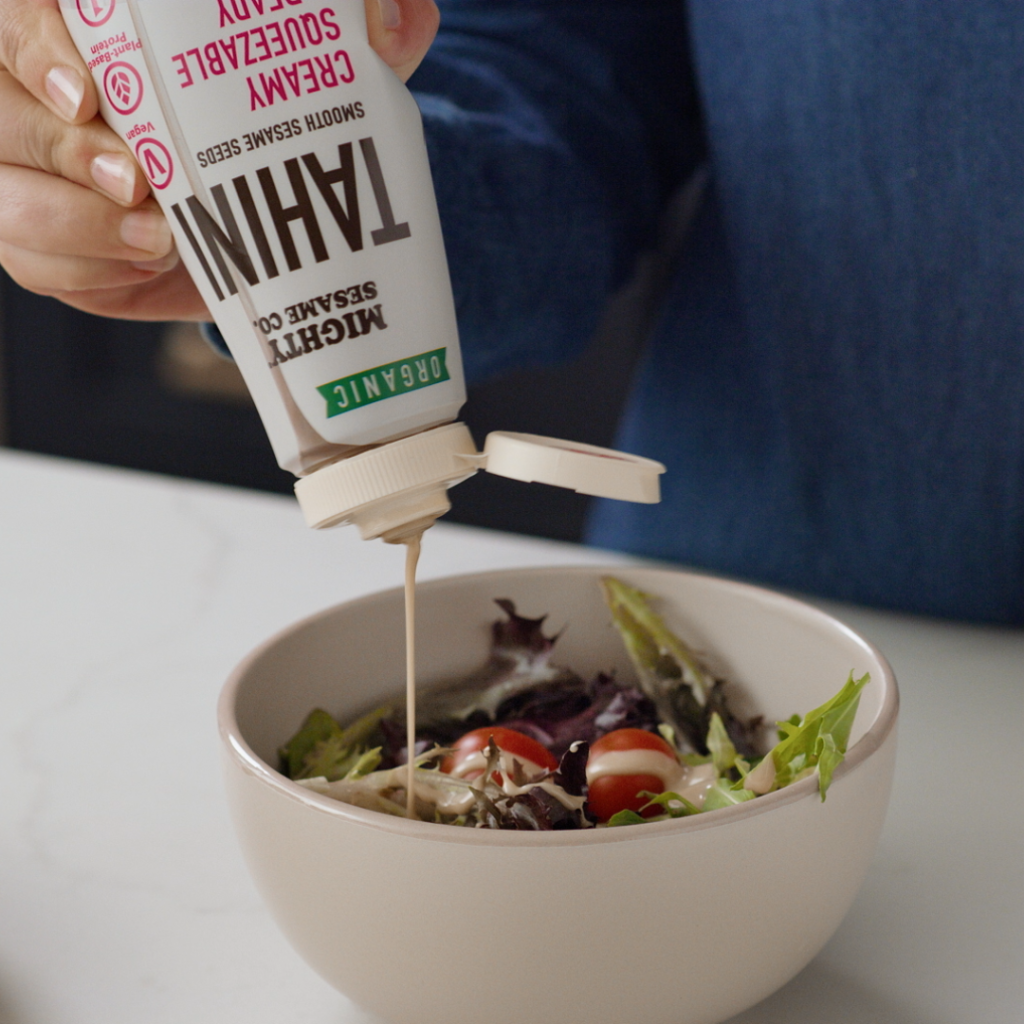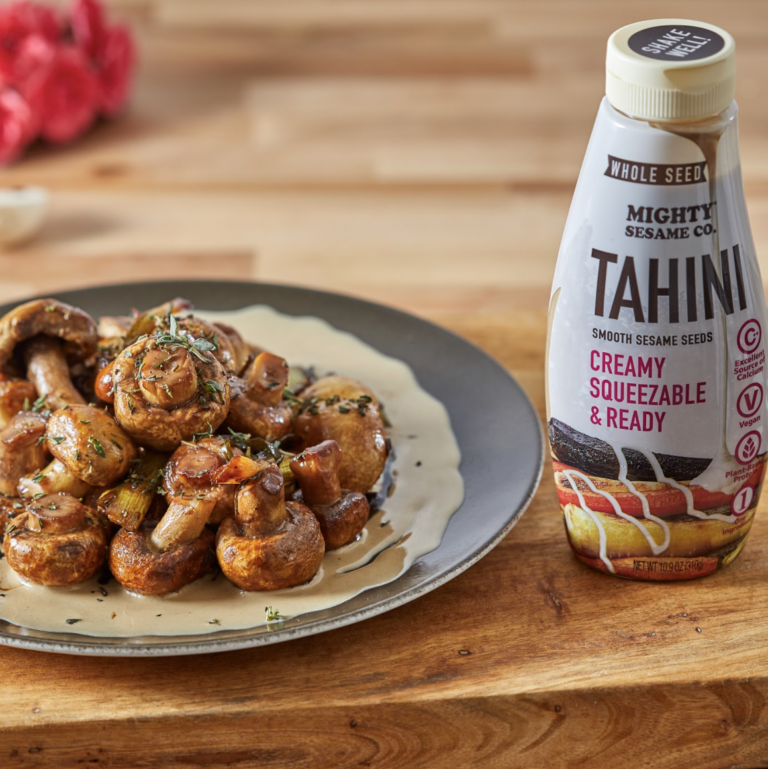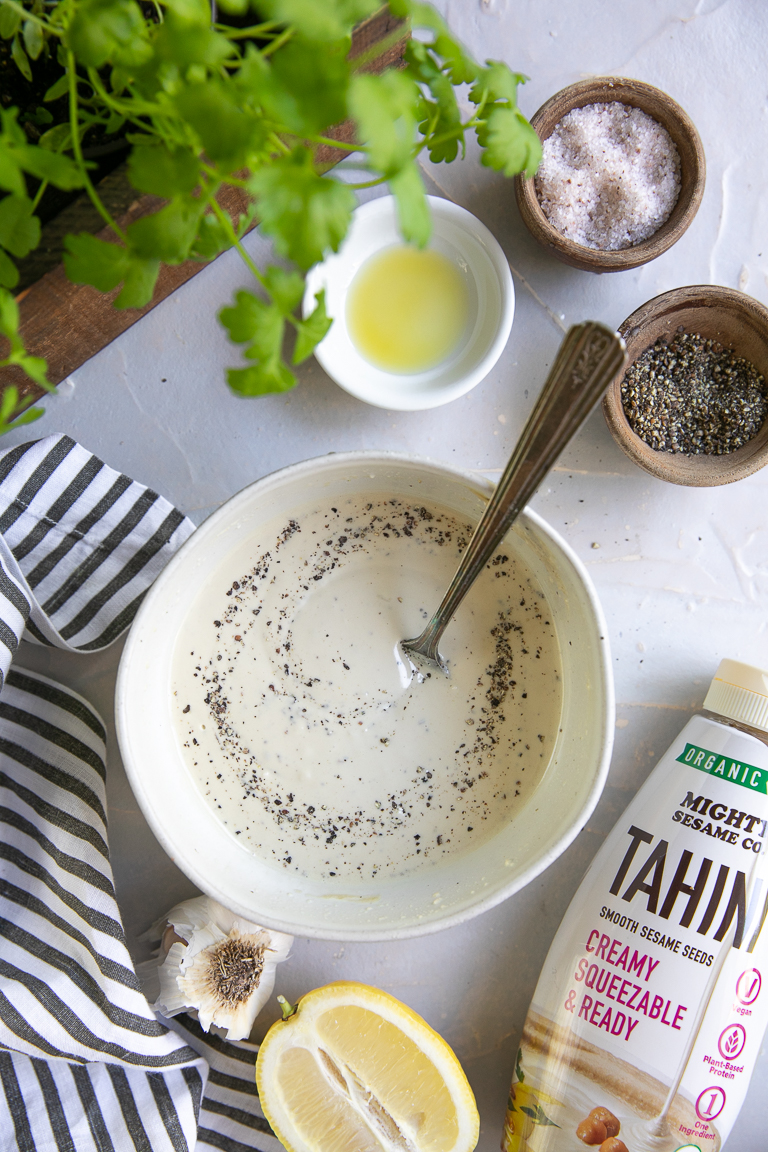
Why is My Tahini So Thick? 5 Expert Answers
Have you ever opened a jar of tahini and found it super thick? Don’t worry, you’re not alone! Many people wonder about this. Let’s explore why tahini can be thick and what it means for your cooking.
Why is My Tahini So Thick? Key Points:
- Natural oil separation: Oils rise to the top, leaving a thicker paste at the bottom
- Temperature effects: Cooler storage can cause tahini to thicken
- Sesame seed quality: Type and quality of seeds affect consistency
- Everyday occurrence: Thickness doesn’t necessarily indicate spoilage
- Consistency varies: Natural variation in tahini thickness is common

Understanding Tahini Consistency
Tahini is a creamy paste made from ground sesame seeds. It’s used in lots of yummy Middle Eastern dishes and is popular all over the world. Sometimes, tahini can be too thick to use easily. The thickness of tahini can change depending on the type of sesame seeds used, how they are made, and how they are stored. Knowing about these things can help you use your tahini better, no matter how thick it is.
So, Why Does Tahini Get Thick?
There are a few reasons why tahini might be thick. Let’s look at the main ones:
Natural Oil Separation
The oils can float to the top when tahini sits for a while. This leaves a thicker paste at the bottom. It’s normal and doesn’t mean your tahini has gone bad. It shows that your tahini is natural and not processed too much. It’s like when peanut butter separates – the same happens with tahini.
Temperature Effects
Tahini can become thicker when cold, making it hard to spread if kept in the fridge. This is because the oils in tahini can become solid when cold. But don’t worry—if you let it warm to room temperature, it will become runny again.
Quality of Sesame Seeds
The type and quality of sesame seeds used can affect how thick tahini is. High-quality organic tahini made from whole sesame seeds might be thicker because it has more oil and isn’t processed as much. Tahini made from seeds with their shells (unhulled seeds) is usually thicker and has a more pungent taste than tahini made from seeds without shells.
Is Thick Tahini Normal?
Yes, thick tahini is often a sign of good quality. Many people who love tahini prefer it thick because it means more sesame seeds and less added oil. Thick tahini usually has more nutrients in each spoonful. Learn more about the benefits of tahini here, including all the good vitamins, minerals, and healthy fats it has.
How to Adjust Thick Tahini
If your tahini is too thick, here are some easy ways to fix it:
- Stir it up: Mix the tahini well to blend any separated oils. Use a long spoon to reach the bottom of the jar.
- Add liquid: Mix in a little warm water or lemon juice. Start with a teaspoon and add more if needed.
- Warm it up: Let the tahini sit at room temperature for a while. You can also put the jar in warm water for a few minutes, but be careful not to get water in the tahini.
- Use a food processor: To make the tahini smooth in more significant amounts, blend it in a food processor.
Check out our easy tahini recipes for more ideas on using tahini in different recipes. These recipes work with tahini of all thicknesses, so you’ll always get tasty results.

Final Thoughts
So, why is tahini sometimes thick? It’s often due to natural processes and can even mean good quality. Whether you like your tahini thick or thin, knowing about these differences can help you use it better in your cooking.
At Mighty Sesame Co., we want to give you the best tahini experience. Our organic tahini in a squeeze bottle is easy to use and keeps the right texture. This unique bottle helps keep the tahini just right and makes it easy to pour.
Remember, a little thickness in your tahini is nothing to worry about – it’s part of what makes tahini unique. Try using different thicknesses in your recipes. Thicker tahini is excellent for some dishes, while thinner tahini works better for others. The versatility of tahini is why so many people love cooking with it.
Happy cooking, and enjoy your tahini adventures!